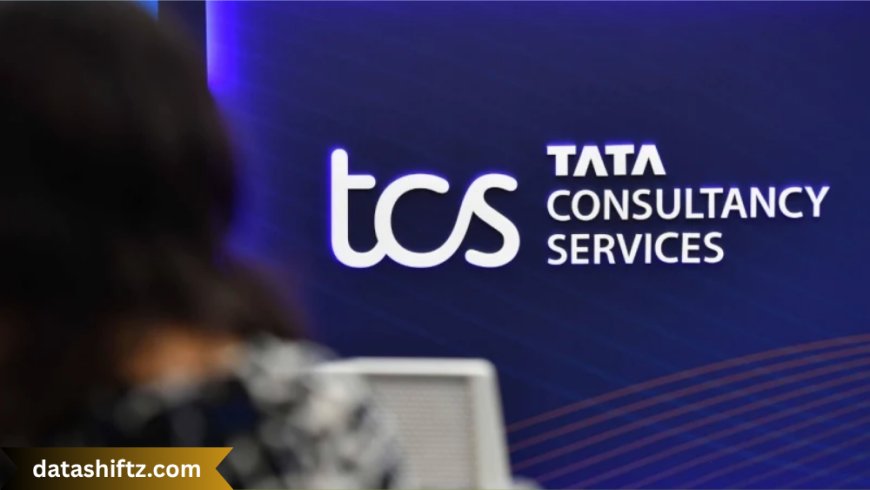TCS Bench Period 35 Days: A Closer Look into Policies, Impact, and Employee Experience

Introduction
Tata Consultancy Services (TCS) is one of the largest IT service providers in the world, employing hundreds of thousands of professionals. With such a massive workforce, the concept of a “bench period” becomes an integral part of resource management. Recently, TCS has standardized its bench period to 35 days, a development that has sparked curiosity, concern, and conversation among both current employees and aspiring candidates.
In this blog post, we’ll explore what a bench period is, what the 35-day duration means in the context of TCS, and how it affects employees, company operations, and career planning. This guide will also provide actionable tips for those navigating the bench period and understanding its implications.
What Is the Bench Period in TCS?
In the IT industry, a bench period refers to the time when an employee is not assigned to a specific client project but remains employed by the company. During this phase, employees may undergo training, await allocation to a new project, or contribute to internal tasks.
TCS, like many other IT firms, uses the bench strategy to maintain workforce flexibility. However, the standardization of this period to 35 days introduces new rules and expectations for both management and employees.
Overview of TCS Bench Period Policy
The following table outlines key aspects of the TCS bench policy, especially the recent change to a 35-day window:
| Aspect | Details |
|---|---|
| Bench Duration | 35 Days |
| Status During Bench | Still an active employee, eligible for salary and benefits |
| Activities Expected | Skill development, internal assignments, training programs |
| Risk of Termination | Yes, if not allocated to a project within 35 days |
| Support Provided | Access to upskilling platforms (iON, Elevate), internal job postings |
| Exceptions | Depends on skill demand, business needs, and performance history |
Why Has TCS Set the Bench Period to 35 Days?
The move to define a strict 35-day bench period has both strategic and economic justifications:
1. Resource Optimization
Shortening the bench period reduces non-billable time, allowing TCS to better utilize its talent pool and maintain lean operations.
2. Project Readiness
With faster bench exits, TCS ensures that employees are actively contributing to client projects or preparing for new ones.
3. Pressure to Upskill
The tight deadline encourages employees to upskill, explore lateral movements, and become more market-ready.
4. Cost Efficiency
Reducing idle workforce duration directly contributes to better financial health and competitive pricing in project bids.
Impact of the 35-Day Bench Period
Let’s analyze the possible effects of this policy from multiple perspectives.
A. For Employees
Pros:
-
Motivates quick upskilling.
-
Encourages employees to explore cross-functional roles.
-
Promotes agility in career planning.
Cons:
-
Increased job insecurity.
-
Higher stress levels during transition periods.
-
Limited time to find a suitable internal opportunity.
B. For the Organization
-
Positive: Increases overall efficiency, enhances workforce agility, and improves client responsiveness.
-
Challenges: Risk of attrition and lowered employee morale if not handled with transparency and empathy.
What Can You Do During the 35-Day Bench Period?
Here’s a practical checklist to help employees make the most of their bench period at TCS:
Top 10 Actions for TCS Employees During Bench
-
Enroll in TCS Elevate or iON Learning Programs.
-
Regularly check the internal project portal (Ultimatix IJP).
-
Update your internal resume and skill matrix.
-
Attend technical and soft skill workshops.
-
Reach out to your Resource Manager weekly.
-
Connect with your network for project openings.
-
Contribute to internal projects or initiatives.
-
Seek mentorship from senior colleagues.
-
Explore certification programs (e.g., AWS, Azure, Agile).
-
Maintain a positive and proactive attitude.
Frequently Asked Questions (FAQ)
Q1: Will I be paid during the 35-day bench period?
Yes, employees on bench continue to receive their salary and all applicable benefits unless otherwise stated in exceptional cases.
Q2: Can I be terminated if not allocated within 35 days?
Possibly. While TCS doesn’t immediately terminate bench employees, not securing a project within 35 days can trigger a performance review and discussions about future employment.
Q3: Is bench time considered experience?
Yes, your time on the bench is still part of your total experience with TCS.
Q4: Can I ask for an extension beyond 35 days?
Extensions may be granted based on skills in demand, performance history, or availability of roles, but it's not guaranteed.
Tips to Avoid Prolonged Bench Time
Here are a few expert strategies for reducing the risk of extended bench periods:
Proactive Planning Is Key
-
Keep your skills aligned with market demand.
-
Track industry trends and emerging technologies.
-
Always be ready with a portfolio or resume for internal movement.
Maintain Visibility
-
Make your achievements visible through Ultimatix or manager reports.
-
Attend team meetings even while on bench to show engagement.
-
Ask for feedback regularly and stay connected with HR.
Final Thoughts: Turning the Bench Period into a Launchpad
The 35-day bench period at TCS is not just a constraint—it can be a launchpad for career growth if approached with the right mindset. While the timeline may feel pressuring, it also pushes employees to act fast, upgrade their skills, and diversify their capabilities. For TCS, it means a more dynamic workforce, better resource allocation, and improved service delivery.
If you’re in the IT sector or planning to join TCS, understanding and preparing for the bench process is crucial. Make every day count—because 35 days can either be a waiting game or a stepping stone toward your next big opportunity.
Are you a current or former TCS employee? Share your experience with the bench period below. Let’s learn from each other and grow together.
Would you like this blog post formatted for a website or shared as a downloadable PDF? I can also help tailor this for LinkedIn or internal company newsletters.





























